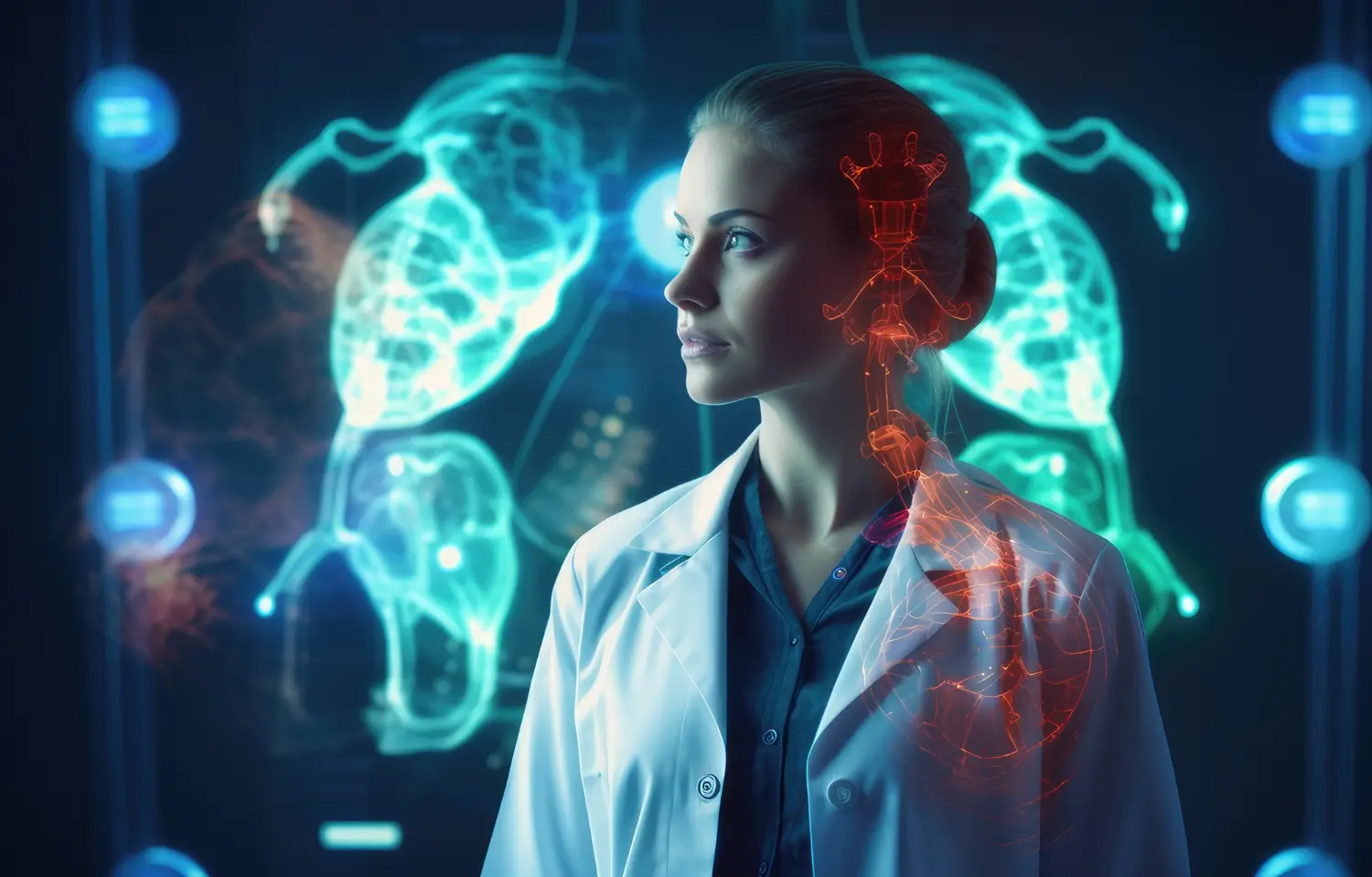- Software
- May 13, 2024
Generative AI in Healthcare: Key Applications & Technologies
Generative AI refers to advanced algorithms capable of creating text, images, video, or audio content from existing data sets. This cutting-edge technology helps tackle persistent issues like rising healthcare costs and the global shortage of healthcare professionals, among many others. Moreover, 92% of leaders in the industry believe generative AI can improve efficiency, and 65% think it can enable faster decision-making.
Read more- Software
- May 7, 2024
Blockchain Metaverse – The World Beyond Reality, Powered by VR and Crypto
Decentralized exchanges, NFTs, Stablecoins, ERC-20 – the Blockchain Metaverse craze is here for a good reason. When you merge the security and efficiency of decentralized blockchain solutions, combine it with the economic benefit provided by NFTs, and season this mix with the immersive nature of VR – you’ve got yourself a recipe for the next breakthrough technology.
Read more- Software
- May 6, 2024
Navigating the Challenges of AI App Development
AI injects a new dimension of intelligence into mobile apps, revolutionizing their functionality and UX. By harnessing AI capabilities, apps can offer personalized experiences tailored to individual preferences, increasing user engagement and satisfaction.
Read more











